

Dive into the dynamic realm of Chinese web culture, a chaotic and reactive landscape that serves as a colossal laboratory for cultural innovation. At Labbrand, we believe it’s a window into the pulse of China that every brand should keenly observe. This article explores the latest trends shaping the online sphere this year, unraveling their implications on Chinese society and consumer lifestyles. Discover why staying attuned to Chinese web culture is not just a choice but a necessity for brands seeking relevance and resonance.
MY LOVE FROM THE STARS
It is one thing for TV shows to get millions of viewers but quite another for them to get people to go out and consume insane amounts of fried food and alcohol. That’s just how powerful “My Love from the Stars”, the latest Korean rom-com sensation, is.

Featuring actors Kim Soo-Hyun and Ju-Ji-Hyun, “My Love from the Stars” tells the story of a (strikingly good looking) alien who landed on earth 400 years ago and, with only a few months before he is scheduled to go back to his home planet, falls in love with a beautiful yet slightly ill-tempered actress. Since it started airing in December 2013, the show has attained cult-like status to the extent that the airing of the series finale in late February made the front page of newspapers all over the country.
Explore the profound impact of online shows on Chinese web culture, influencing not only viewer preferences but also shaping consumer behavior on major e-commerce platforms like Taobao. Witness the emergence of dedicated shops offering affordable replicas of show-inspired fashion items. Discover how mobile chat application Line capitalized on the trend with custom stickers, and observe the widespread adoption of the lead character’s lifestyle, influencing purchasing decisions for cosmetics like IOPE cushion powder and driving a surprising boost in the “fried chicken and beer” trend, revitalizing the Chinese poultry industry post the 2013 bird flu crisis. Explore the intricate dynamics of cultural trends and their far-reaching effects on diverse sectors within Chinese society.
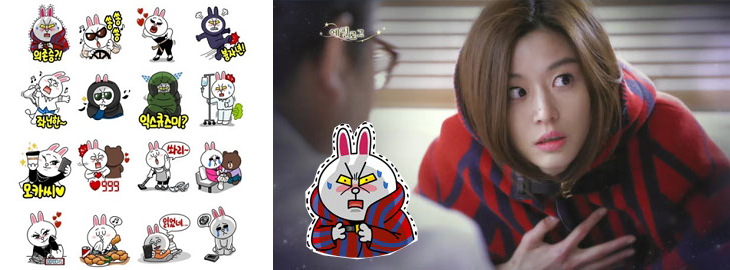
My Love from the Stars themed LINE emoticons
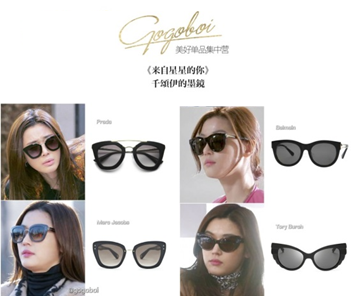
Fashion blogger Gogobaoi discussing the style of the lead character
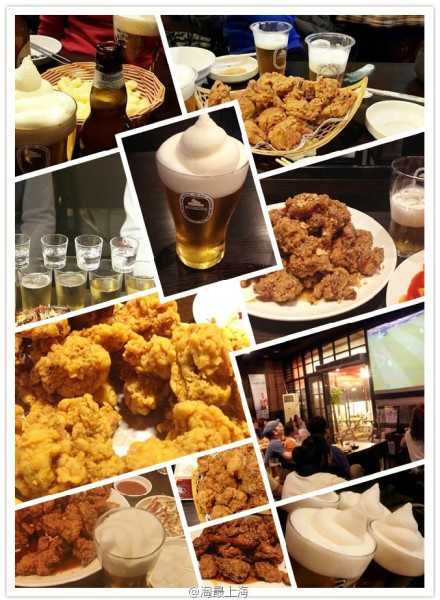
The fried chicken and beer craze helped the Chinese poultry industry
TRASHING THE CHINESE NEW YEAR GALA
The annual Chinese New Year Gala is the most watched TV show on earth with over 700 million people tuning in every year for a 4-hour entertainment extravaganza combining songs, dance acts, comedy skits, magic tricks and traditional Chinese opera. Much like the super bowl, the CCTV Gala has grown into much more than a TV show to become a Chinese tradition with meaning beyond its most visible expression. Today, the conversations happening around the show matter as much as, if not more than, the show itself. Social platforms have spawned a new practice amongst young netizens: 春晚吐槽 which literally translates as “trashing the CCTV gala.”
The CCTV gala is a highly scripted affair meant to appeal to the masses. Its content, criticized as bland and non-innovative, clashes with the expectations of the sophisticated post 80s and post 90s urban Chinese. The show has thus become an ideal target of online jokes, memes and witty comments. This year, netizens have been more active than ever, having one eye on the TV and the other on their smartphone, tablet or laptop. Chinese netizens have once again demonstrated their incredible creativity.
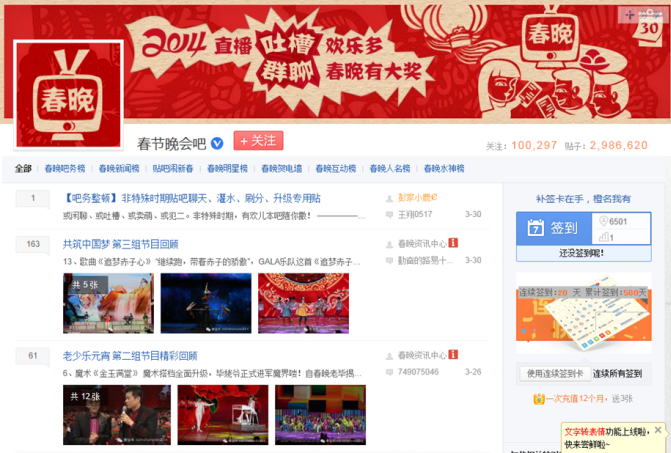
A Baidu forum dedicated to “trashing Chinese New Year Gala”
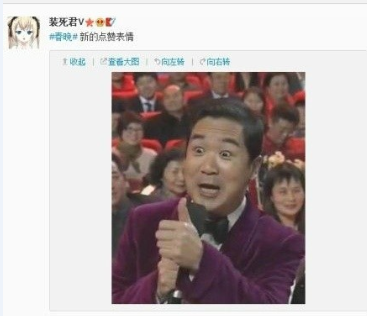
“#Chinese New Year Gala# The new thumbs-up expression.”
This post humorously summarized Chinese netizens’ mixed feelings when “appreciating” the yearly grand gala.
One of most heated discussions was generated around the spinning-dance performance “Time” by 15-year-old dancer Xiao Cai Qi (Little Flag). During the entire gala, Little Flag spun non-stop for 4 hours.
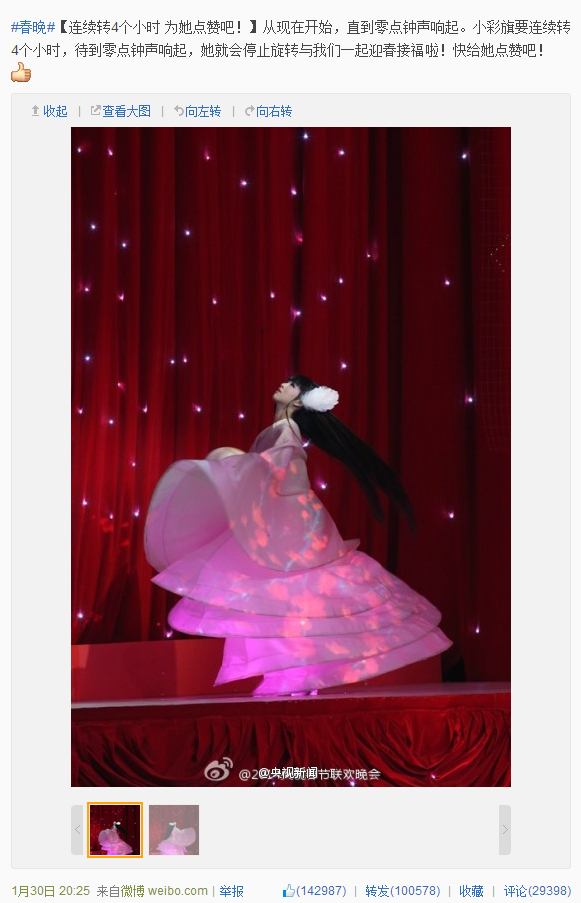
@CCTV News: “#Chinese New Year Gala# [Spinning non-stop for 4 hours, give her a thumb-up] Starting now until midnight, Little Flag will be spinning non-stop for 4 hours. When the bell rings for 00:00, she will stop to welcome the New Year with us! Let’s give her a thumbs-up!”
The above Weibo post was by the official account of CCTV News and received 143k ‘thumbs-up’ and 100k forwards.
However as the meme shown before, Chinese netizens possess mixed feelings towards this. Despite the fact it was meant to symbolize the passing of time and the changing seasons, as well as to celebrate the beauty of Chinese classic dance, many Chinese audiences found it heart-wrenching and showed sympathy for the teenage performer. The trending hashtag #Little Flag take a rest# even surpassed those of #Chinese New Year Gala# and #Chinese New Year Gala goofs# on Sina Weibo.
Netizens made jokes and mockeries to demonstrate their disagreement.

“Did you know that Xiao Cai Qi provides electricity for the entire Chinese New Year Gala?”
Little Flag is since nicknamed “春晚小陀螺” (the gyroscopeof the Chinese New Year Gala), as netizens joked that it was Feng Xiaogang, director of the gala and famous film director, paying tribute to the Hollywood blockbuster Inception.
Netizens had fun joking about other things as well. For example, actor Huang Bo was mocked for his Hermes outfit and style.
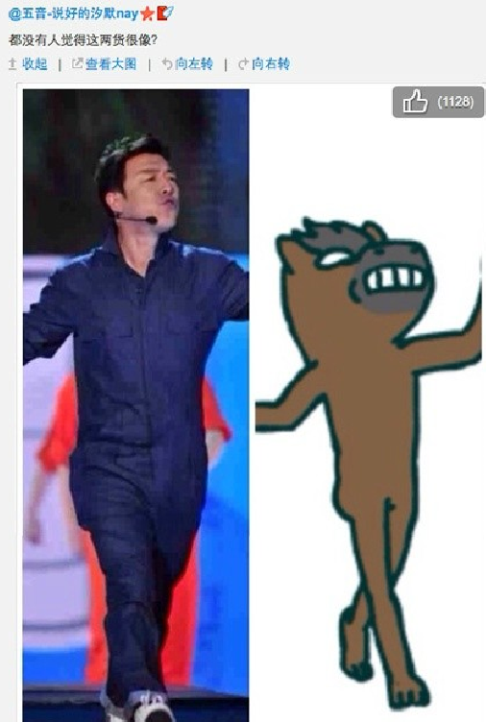
“Does anyone find striking similarities between these two?” (On the left is singer and actor Huangbo and on the right a famous Wechat emoticon.)
kitsch: As an art movement, lifestyle, or literature and film genre, kitsch is pleasingly distasteful. It’s melodramatic, overdone, gaudy and tacky or sentimental and folksy. It’s so bad that it’s cool.
THE RETURN OF THE HAIER BROTHERS
The Haier Brothers are one of China’s most famous brand icons. They represent an example of brand content before the term became cool. In the mid-1990s, Haier (China’s biggest household electronics brand) produced a cartoon series that ran for 212 episodes. In each episode, the Haier brothers would travel around the world and live extraordinary adventures. In the process, they would educate the young viewers about all sorts of subjects from geography to science and history. Chinese children in the mid-1990s grew up with the Haier Brothers. The brothers are icons of an era and Haier is now calling upon nostalgic fans to breathe new life into the legend.

Starting on March 1st 2014, Haier launched a campaign that calls on fans to contribute ideas to refresh the Haier brothers’ identity. Fans are invited to post their own design for the modernized version of their childhood icons. While some of the entries were serious attempts to rejuvenate the Haier brothers, others take a much more humorous approach.

The Haier Brothers bringing back flight MH370

One of the most serious entries

Haier brothers in Beijing

Some of the less serious entries
The campaign’s success demonstrates the enduring popularity of vintage icons. This resurgence of past icons is an important macro trend that illustrates people’s ambivalent attitude towards modernity and can be interpreted as a silent yearning for simpler times
DOES YOUR FAMILY KNOW ABOUT IT…?
“Does your family know about it?” is one of these nonsensical memes that baffle the casual observer. The phenomenon started on Douban with a post saying “You are so cocky. Does your family know about it?”
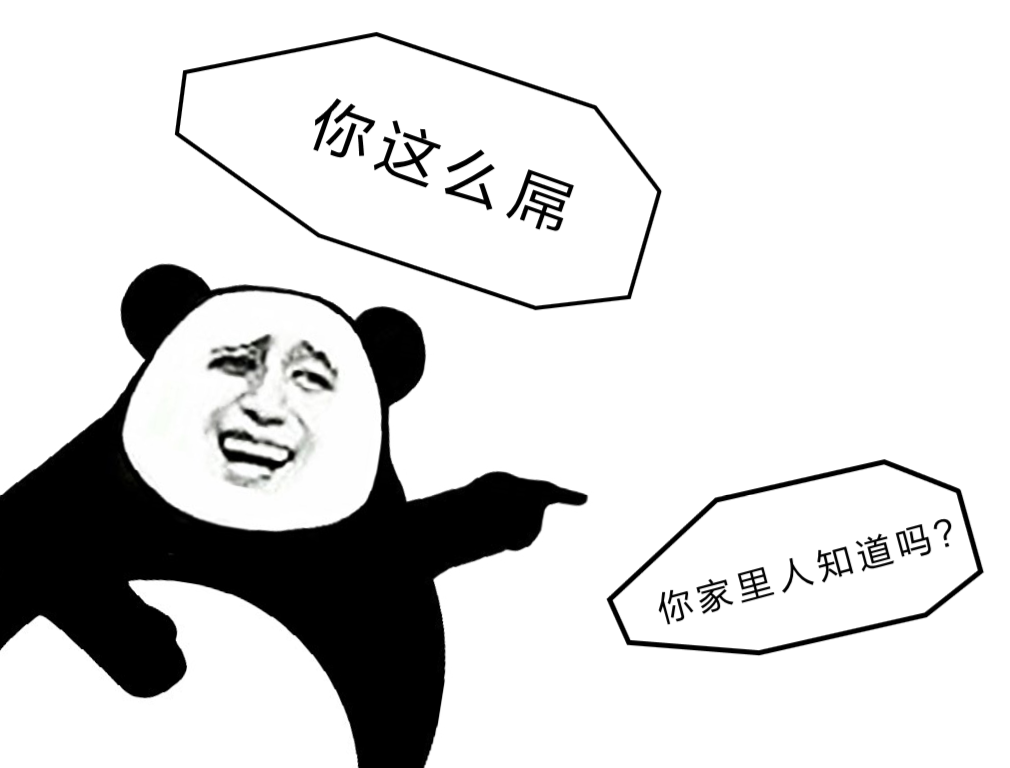
The catchphrase is often used to poke fun at people trying to show off and pass off as more sophisticated than they are. This shows popular disdains who use their online presence to portray themselves as big shots.
In only a few days, the catchphrase was everywhere and even started creeping into everyday vocabulary. Brands and netizens alike were all participating in the craze. Examples include:

With Photoshop every girl can look like a movie star
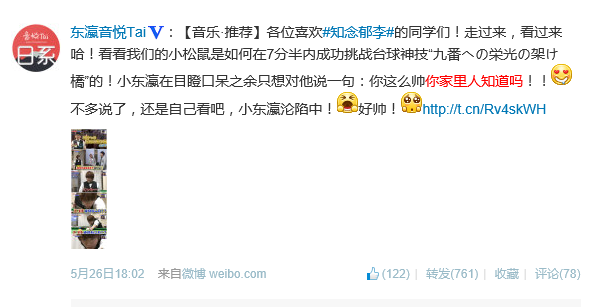
Weibo post by a music video website
CELEBRITY SCANDAL
In late March, China’s web world was shaken by a massive celebrity scandal: famous married actor Wen Zhang was photographed in the company of Yao Di, a young actress. Before the scandal, Wen and his wife Ma were considered a “model couple” with millions of mainstream Chinese looking up to them as the symbols of pure, innocent love.

(left & upper right) The illegitimate couple was spotted getting intimate in Shenzhen; (lower right) Wen Zhang and Ma Yili pre-scandal
Ma was aware of the affair and responded “Being in love is easy. Being married isn’t. We should cherish the life we have” via Sina Weibo. The affair sent the social media sphere into a frenzy (remarkable even by Chinese standards). Wen Zhang’s infidelity quickly became a top news item, his original Weibo posts (admitting the affair) was forwarded over 700,000 times and received over 1.3 million comments in a few days. Ma Yili’s response of the affair became a trending topic, setting a new record with over 1.6 million ‘thumbs-up’, 600,000 forwards and 850,000 comments in only 3 minutes following its release.
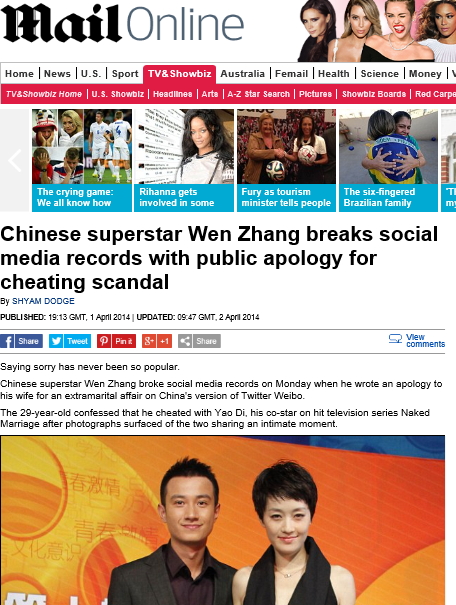
This particular celebrity scandal even caught the eyes of international media.
As usual, Taobao shop owners were amongst the first to surf the trend. Consider the following examples:
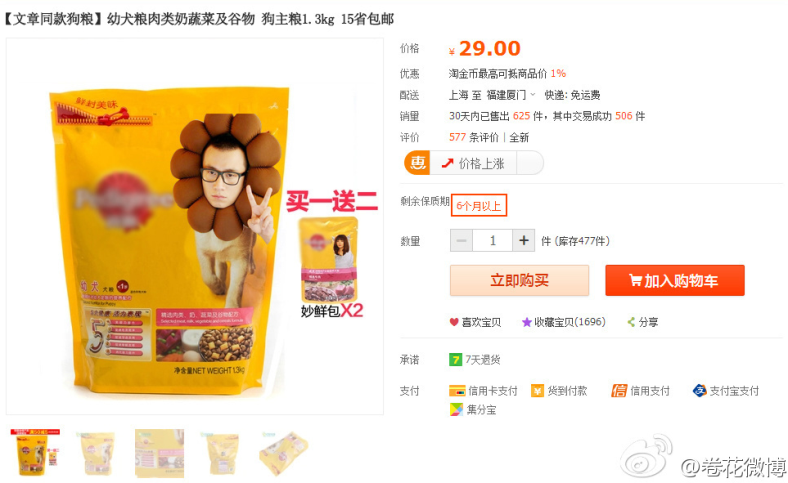
Pet food Taobao storefront uses Wen Zhang’s face to advertise its products. This is a reference to the famous Chinese proverb “not worth a pig or a dog” commonly used to insult adulterers. The same shop also used Yao Di’s image to advertise a “buy one get one free” deal.

A cosmetics Taobao shop uses Yao Di and Ma Yili as “before” and “after” pictures to showcase the effect of its essential oils.
Once again the trend was fast picked up not only by regular consumers, but also brands and government organizations.

A “drive carefully” billboard in Chongqing mimicking Ma’s famous quote: “The red light is short. The future is long. We should cherish the life we have.”
CONCLUSION
In the ever-evolving landscape of Chinese web culture, trends may come and go, but the core meanings persist. Serving as a window into consumer values, preferences, and habits, this dynamic digital realm offers valuable insights for brands. Rather than blindly following every trend, brands are encouraged to selectively embrace those aligning with their identity. By leveraging these trends strategically, brands can foster engagement, enhance relevance, and reinforce their unique image. Marketers are advised to stay vigilant in this ever-changing web landscape, ensuring continued understanding and relevance to their customers. Delve into the world of Chinese web culture, where thoughtful choices shape enduring connections between brands and consumers.
A Labbrand Group Company © 2005-2024 Labbrand All rights reserved
沪ICP备17001253号-3* Will be used in accordance with our Privacy Policy
To improve your experience, we use cookies to provide social media features, offer you content that targets your particular interests, and analyse the performance of our advertising campaigns. By clicking on “Accept” you consent to all cookies. You also have the option to click “Reject” to limit the use of certain types of cookies. Please be aware that rejecting cookies may affect your website browsing experience and limit the use of some personalised features.